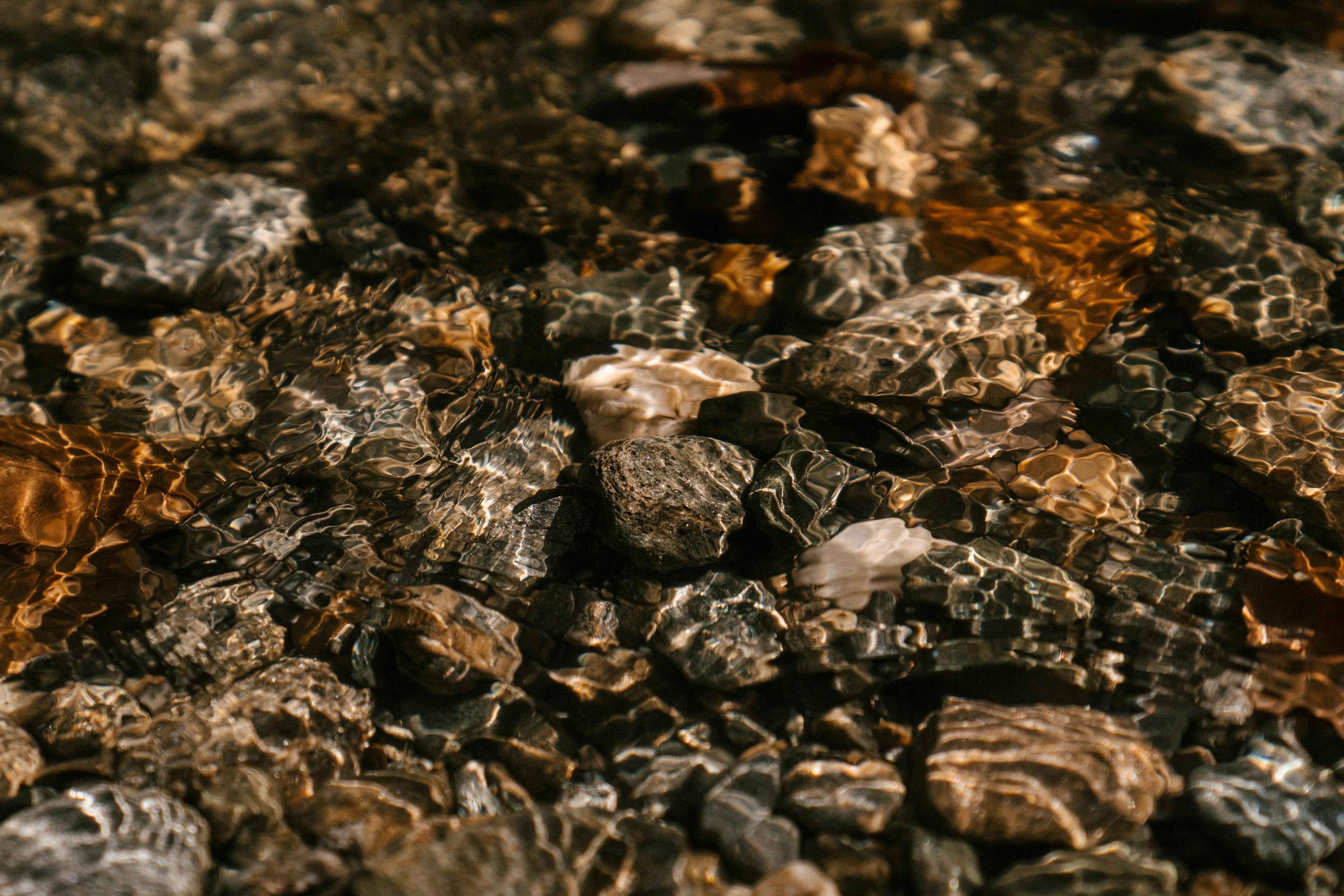Mineral water and distilled water are two distinct types of water that have different characteristics. Mineral water is naturally sourced from underground springs or aquifers and is usually bottled at the source. It contains a variety of minerals, such as calcium, magnesium, sodium and potassium, that give it a unique taste. Distilled water is produced by boiling water and collecting the vapor that results, which is then condensed back into liquid form. Since minerals are not present in the vapor, distilled water does not contain any mineral content. Both of these types of water offer their own unique benefits and uses, so understanding the difference between them can help you decide which one is best for your needs.Mineral water is water that contains various minerals, such as salts and sulfur compounds. It is naturally occurring and is often bottled for consumption. The mineral content of the water is usually the result of underground water sources, which have been filtered through layers of rocks and soil. Mineral water can vary greatly in taste, depending on its source and the types of minerals it contains. It is typically considered healthier than regular tap water because it has not been exposed to chemicals such as chlorine or fluoride.
What is Distilled Water?
Distilled water is water that has been purified through a process of distillation. This process involves boiling the water and then collecting the steam that is produced, which leaves behind any impurities or contaminants. The result is a form of pure H2O that doesn’t contain any chemicals, minerals, or other substances.
Distilled water has a number of benefits over regular tap water. It doesn’t contain any chlorine or fluoride, both of which can have negative effects on health. Additionally, it can be used to fill and maintain the levels in car batteries, as well as for aquariums and steam irons.
It’s also popular for use in humidifiers and CPAP machines due to its lack of contaminants such as bacteria and minerals. Distilled water also helps to extend the life of these devices by reducing the need for frequent cleaning due to buildup from impurities.
Overall, distilled water has many uses and benefits over regular tap water, making it an increasingly popular choice among households and businesses alike.
Are Mineral Water and Distilled Water the Same?
No, mineral water and distilled water are not the same. Mineral water is water that has been naturally enriched with minerals, such as calcium, magnesium, and potassium, as it flows through rocks and soil. Distilled water, on the other hand, is produced through a process of distillation that involves boiling the water to remove any impurities. The two types of water are different in their composition and taste.
Mineral water contains many minerals that are beneficial for health. It can help to replenish electrolytes in the body and provide essential nutrients for healthy bones and teeth. It also has a pleasant taste due to the presence of minerals such as calcium, magnesium, and potassium.
Distilled water is free from any impurities or minerals that could be present in untreated or mineral-enriched waters. It is commonly used in laboratories for experiments because it does not interfere with results. Distilled water can also be used for medical purposes or for drinking if it is treated with a mineral supplement or added back into it after being distilled.
Mineral Water
Mineral water is any type of spring water that contains naturally occurring minerals in it. These minerals are typically found in groundwater sources, such as rivers, lakes, and aquifers. The minerals found in mineral water can vary depending on the location it comes from, but typically includes calcium, magnesium, sodium, potassium, and other trace minerals. Mineral water is often bottled at the source and does not undergo any further processing or filtering. It is also free from additives like chlorine or fluoride that are normally found in tap water. Many people enjoy mineral water for its distinctive taste and natural health benefits associated with mineral consumption.
Distilled Water
Distilled water is a type of purified water that has been filtered through a process known as distillation. This process involves boiling the source of water until it converts to steam and then cooling the steam until it condenses back into liquid form. This process removes all solids, chemicals, and impurities from the original source of liquid. The result is a pure form of H2O without any added minerals or contaminants. Many people prefer distilled water for its clean taste and
Does Mineral Water Contain Minerals?
Yes, mineral water does contain minerals. Mineral water is natural spring water that has been enriched with minerals during its journey through layers of rocks and soil. These minerals are absorbed into the water as it passes through the rocks and soil. The minerals that end up in mineral water can range from calcium, magnesium, sodium, potassium, iron and zinc to more trace elements such as selenium and fluoride. All of these minerals are important for our bodies to function properly and help maintain our overall health.
The amount of minerals present in mineral water can vary depending on where the source is located. Mineral waters from different locations can have different concentrations of different minerals depending on the composition of the rocks and soil they pass through. For this reason it is important to look for mineral waters from specific sources that best meet your needs or preferences for certain minerals.
In addition to containing naturally occurring minerals, some brands of mineral water also contain added essential vitamins or electrolytes which can be beneficial for people who are looking for a more nutrient-rich beverage option. It is important to read labels carefully when selecting a brand of mineral water

Is There a Health Benefit to Drinking Mineral Water?
Drinking mineral water may provide a range of health benefits, from helping to regulate body temperature to aiding in digestion. Mineral water is naturally sourced from underground springs and contains a variety of minerals, such as calcium, magnesium, sodium, and potassium. These minerals can be beneficial for your health in several ways.
The most common benefit of drinking mineral water is its ability to help regulate body temperature. When consumed cold, the minerals in the water can help cool the body down while warm mineral water can help warm it up. Mineral water also helps with digestion by aiding in the breakdown of food within the digestive system. Magnesium helps to produce enzymes that break down fat molecules, while calcium helps absorb vitamins and minerals from food more efficiently.
In addition to aiding digestion, mineral water may have other benefits for overall health. Research has found that it can help reduce inflammation and support nerve function thanks to its high levels of magnesium and calcium. It may also decrease risk factors associated with cardiovascular diseases like high blood pressure by helping reduce fluid retention in the body and improving blood circulation.
Overall, drinking mineral water offers many potential
Does Distilled Water Have Minerals in it?
Distilled water is water that has been heated to produce steam and then condensed back into liquid form. The process of distillation removes many of the impurities found in natural water sources, including minerals. As a result, distilled water does not contain any minerals.
The process of distillation removes all types of minerals, including calcium, magnesium, sodium, and potassium. These minerals are naturally found in many sources of fresh water and can be beneficial for human health when consumed in moderation. However, these same minerals can also cause damage to certain types of plumbing systems if present in high concentrations.
In addition to removing minerals from the water, distillation also removes other contaminants such as bacteria and viruses. This makes distilled water a much safer choice than untreated natural sources when used for drinking or cooking purposes.
Distilled water can also be used for industrial purposes such as cooling systems and medical processes. In these cases, the lack of minerals is actually beneficial since it prevents the build-up of mineral deposits on machinery over time which could reduce its efficiency or cause damage.
It is important to note that while
Is Mineral Water Safe to Drink?
Mineral water is a type of water that contains essential minerals such as calcium, potassium, magnesium, and sodium. It is naturally sourced from underground springs and may contain additional trace elements and other dissolved solids. Mineral water is often promoted as being healthier than other types of drinking water due to its mineral content and purported health benefits. But is it really safe to drink?
The overall safety of mineral water depends on the source from which it was obtained. If the source is contaminated with pollutants or other harmful substances, then the mineral water could be unsafe for consumption. Additionally, some types of mineral waters can be high in sodium or other minerals that can be dangerous when consumed in large quantities.
In general, however, drinking mineral water is considered safe. It has been shown to provide some health benefits such as improved hydration and increased levels of essential minerals in the body. Many studies have also found that drinking mineral water can help improve bone health by providing necessary minerals such as calcium and magnesium.
In conclusion, mineral water can generally be considered safe to drink if it comes from a clean source. That said, it is important

Conclusion
Mineral water and distilled water are both types of purified drinking water. Both types of water are free of contaminants and safe to drink. However, they differ in terms of mineral content, taste, and source. Mineral water contains various minerals, while distilled water does not. Mineral water has a distinct taste due to its minerals, while distilled water is virtually tasteless. Lastly, mineral water is sourced from springs and underground sources, while distilled water is produced through a process of distillation. Therefore, we can conclude that mineral water and distilled water are not the same.
In conclusion, although mineral water and distilled water are both pure forms of drinking water, they differ in terms of their mineral content, taste, and source. Thus, it is important to understand the differences between these two types of drinking waters before deciding which one to consume.

